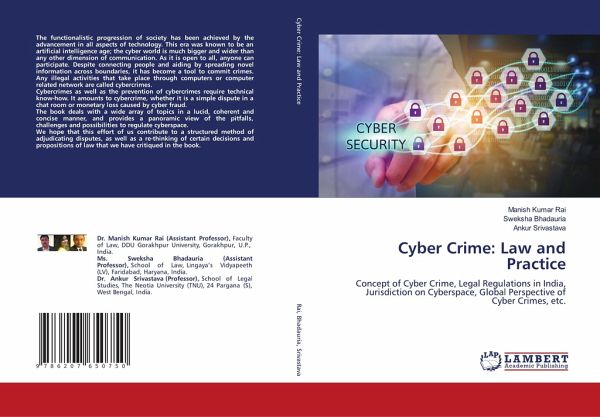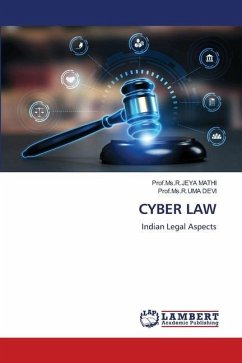
Cyber Crime: Law and Practice
Concept of Cyber Crime, Legal Regulations in India, Jurisdiction on Cyberspace, Global Perspective of Cyber Crimes, etc.
Versandkostenfrei!
Versandfertig in 6-10 Tagen
64,99 €
inkl. MwSt.

PAYBACK Punkte
32 °P sammeln!
The functionalistic progression of society has been achieved by the advancement in all aspects of technology. This era was known to be an artificial intelligence age; the cyber world is much bigger and wider than any other dimension of communication. As it is open to all, anyone can participate. Despite connecting people and aiding by spreading novel information across boundaries, it has become a tool to commit crimes. Any illegal activities that take place through computers or computer related network are called cybercrimes. Cybercrimes as well as the prevention of cybercrimes require technic...
The functionalistic progression of society has been achieved by the advancement in all aspects of technology. This era was known to be an artificial intelligence age; the cyber world is much bigger and wider than any other dimension of communication. As it is open to all, anyone can participate. Despite connecting people and aiding by spreading novel information across boundaries, it has become a tool to commit crimes. Any illegal activities that take place through computers or computer related network are called cybercrimes. Cybercrimes as well as the prevention of cybercrimes require technical know-how. It amounts to cybercrime, whether it is a simple dispute in a chat room or monetary loss caused by cyber fraud.The book deals with a wide array of topics in a lucid, coherent and concise manner, and provides a panoramic view of the pitfalls, challenges and possibilities to regulate cyberspace.We hope that this effort of us contribute to a structured method of adjudicating disputes, as well as a re-thinking of certain decisions and propositions of law that we have critiqued in the book.












